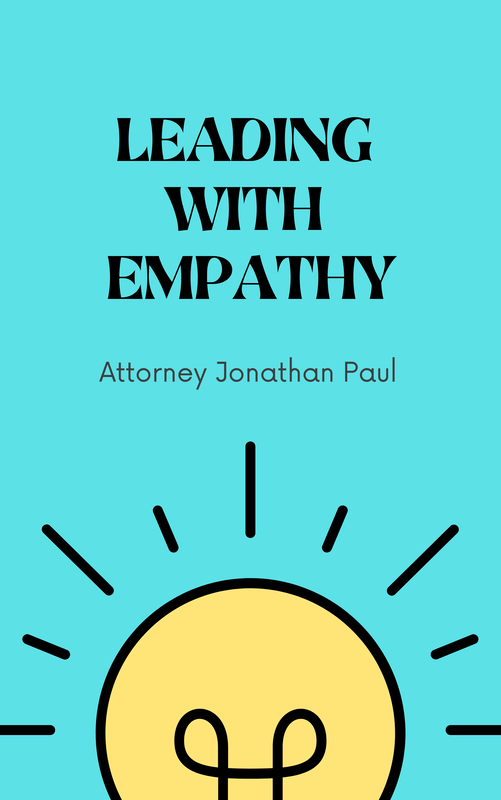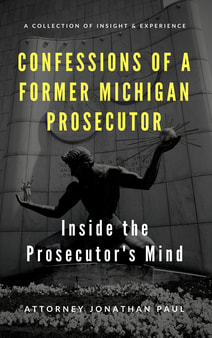Domestic Violence Oakland CountyAs a former prosecutor, I worked on hundreds of domestic violence cases. I've taken that experience, and now help clients accused of this serious crime as a defense attorney.
The first thing we need to do is understand and acknowledge the perception of our audience. This includes the prosecutor, judge, police and the general public. I include the general public, because domestic violence cases go to trial more than most criminal charges, and having a jury of your peers decide your case comes with many pros and cons. I don't condone violence against family members or loved ones. I take on these types of cases, because despite a serious criminal charge, the accused deserves to execute their rights in the criminal justice system. If the client is falsely accused then I help them push for their innocence; if the client broke the law and the evidence supports the charge, then we focus on getting the client the help they need to be a better person, avoid future violence and make amends to the person hurt by their actions. I tell clients all the time, it's ok if you're guilty, it doesn't make you a bad person, it doesn't mean you're going to jail, and it may not even mean having a criminal record from the incident. It's an opportunity to work on yourself, be proactive, and change the reality of who you are along with the perception of the case. In Michigan, a regular assault becomes a domestic assault when it involves a spouse, a former spouse, a person which you share a child in common, a resident or former resident of your household or a person which you have or had a dating relationship. Because of this close bond relationship, which is required, the prosecutor does not give the accused the benefit of the doubt. Anytime I speak to a prosecutor about a domestic violence charge, there's a major stink in the air. Simply by reading a 1-2 page police report, the prosecutor is convinced my client is really guilty and is ready to plead and beg for mercy from the judge. Prosecutor's, especially less experienced ones, don't bother to see both sides of the case; the majority of domestic violence cases begin with a mutual dispute, and typically two parties are at fault in the incident starting, and usually in the police getting involved. Once the incident has started, does one party break the law with a violent act, or does one person just get arrested based on who placed the call. Does the male get arrested simply due to public perception? Are their real and actual injuries (although not required) that can help us better understand the case? There's unlikely to be a video unless it happens in public, but photos taken of the parties involved, medical reports, audio from 911 calls, officer microphones while on scene and dash cam videos can be helpful. The rules of evidence for domestic violence cases provide the prosecutor additional ammo to admit certain evidence against a client if the victim/witness testifies to something different at trial than originally stated to law enforcement. As a former prosecutor, I can see the wheels spinning in their head; sure the report looks strong, but are you able to actually put this forth at trial and meet your burden? Maybe not. My clients always keep a trial on the table for domestic violence cases, because unlike most cases, a private citizen is the key witness, not a police officer, and there's probably not going to be videos, tests etc like say a drunk driving case. My clients must use this elephant in the room to their advantage. These cases usually start with people who love each other, get involved in an incident, but within 24 hours are back loving each other. Is the prosecution willing to force someone to testify if their story has changed? Are they going to issue a material witness warrant and arrest someone to testify? Along with this leverage, my clients have to create leverage outside of the courtroom. We understand the perception of my client. and the uncertainly that the charges bring for my client in the mind of the prosecutor and judge. Is my client a dangerous person? Should they be locked up? Should they have to avoid the person and the place where this happened? No matter what the actual answer to those questions are, we lean toward acknowledging that these are not worth fighting over at the moment, we simply get to work to show they aren't true. If alcohol was involved, I get my clients on a daily testing unit to show that they are clearheaded during the case, and if alcohol was a major contributor to the incident, we put a lot of our focus on substance abuse awareness and treatment. If the evidence indicates there actually was some form of violence, we may engage in proactive anger management and/or counseling. If based on the evidence, it appears that resolution may be the best route, we may even begin an actual domestic violence program. If the parties wish to have contact, I am able to make contact with the alleged victim/witness to inform them that if they wish to provide additional information about wanting contact with my client, they can come to the next court hearing. A judge may or may not grant this request now, but my client needs the victim to agree for this to happen. If things are still red hot, I tell my client they are better off not having contact right now; the worse thing to happen is for my client to have contact, and another argument breaks out, and the cops are back at the scene. That's a potential bond violation and new charges. Each case is different, but the perception of the prosecution rarely changes for domestic violence. This is always a hot button issue for a prosecutor, which it should be, but the prosecutor has to be asked to keep an open mind and the defense must be able to play some currency when it comes to discussing positive outcomes for the client. It's quite difficult to sway a prosecutor on simply statements like: he has no record, he has a job, kids etc. This is not a low level everyday OPPS my client made a mistake. Domestic violence charges must be met with a serious response; mere allegations are enough for my client to get to work on changing the perception of the case. Comments are closed.
|
Categories
All
|





